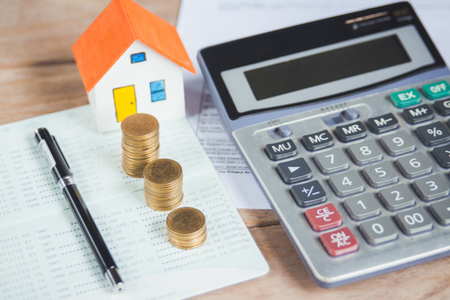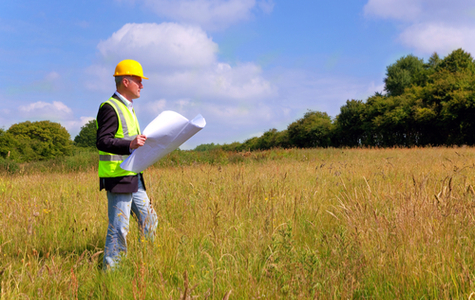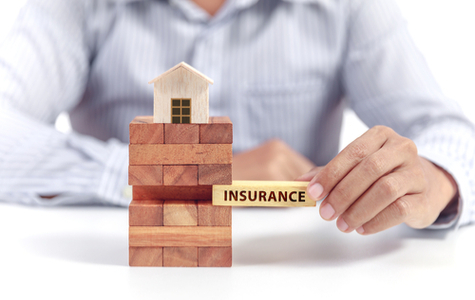
Buying a new home is exciting, whether you’re purchasing your first property or your tenth.
Yet before you get your hands on the keys, you’ll have to save hard for your deposit, apply for a mortgage and pay various fees and costs.
How do mortgages work?
The good news is that mortgages are not as complicated as you might think. Once you speak to a mortgage adviser or New Homes Mortgage Adviser (NHMA) if you are buying a new build, they’ll be able to advise on which type of mortgage best suits your personal circumstances.
In simple terms, a mortgage is a loan that you take out to buy a property or piece of land. A mortgage typically runs for 25 years, but it can be shorter or longer if you choose. You’ll make monthly mortgage payments until it’s paid off in full (the capital and interest). If you fail to make your payments, then your mortgage provider can repossess your home and sell it to settle the debt.

What costs are involved?
It’s easy to underestimate what you’ll need to pay, as most people just concentrate on what they need for a deposit, forgetting the other costs involved. To give you some idea, take a look at our moving home costs breakdown below:
 Deposit
You’ll need a deposit of at least 5% of the purchase price of the property. The larger your deposit, the lower your Loan to Value (LTV); this is the amount you're borrowing as a percentage of what your new property is worth (its current market value).
Deposit
You’ll need a deposit of at least 5% of the purchase price of the property. The larger your deposit, the lower your Loan to Value (LTV); this is the amount you're borrowing as a percentage of what your new property is worth (its current market value).
 Deposit
You’ll need a deposit of at least 5% of the purchase price of the property. The larger your deposit, the lower your Loan to Value (LTV); this is the amount you're borrowing as a percentage of what your new property is worth (its current market value).
Deposit
You’ll need a deposit of at least 5% of the purchase price of the property. The larger your deposit, the lower your Loan to Value (LTV); this is the amount you're borrowing as a percentage of what your new property is worth (its current market value).
Mortgage costs
From arrangement fees to mortgage broker fees, there are several costs associated with getting a mortgage or remortgage. Some have to be paid upfront, others can be added to your mortgage on completion.
Stamp duty
As of 1st July 2021, the buyers don’t need to pay any Stamp Duty on property purchases up to £250,000. The existing 5% rate applies on homes between £250,000 and £925,000. Find out how much you’ll have to pay by using the Government’s stamp duty calculator.

Surveyor fees
Surveys range in price and will depend on the value of your property. For a typical property, a (RICS) Royal Institution of Chartered Surveyors Condition report costs around £400, a Home Condition Survey costs around £500 and comprehensive building or full structural surveys costs over £600.
Find out more about the different types of house survey.

Legal fees
When buying a property, you’ll need a solicitor or licensed conveyancer to complete the legal side of the process. Average legal fees are between £500-£1,500, including VAT at 20%. The price varies depending on the complexity of the purchase, the type of property and your location. You may have to pay around £250 for your solicitor to do local searches and you’ll have to pay between £90 and £140 to register that you own the property with the Land Registry.
Repairs
If you’re buying a newly built home, then you shouldn’t need to pay for any repairs, but with other properties there may be DIY jobs and repairs that you need to tackle as soon as you move into the property.

Moving fees
The price you pay for moving your belongings into the property can vary dramatically, depending on whether you’re going to be moving your belongings in yourself, are hiring a van or using a removal company. Moving within a few miles is going to be considerably cheaper than moving from one side of the country to the other.
Well ahead of your proposed moving date be sure to get a few quotations and check availability on your selected date if you plan to use a removal company. This will ensure you get the best deal and you can move when you plan to.

Council tax
You’ll have to start paying council tax as soon as you move in and if you’re moving into a bigger property than you had previously, you’ll probably have to pay more. If your new home is leasehold, you’ll have to pay ground rent of around £50-£100 a year too and a service charge to the person who owns the lease.
Insurance
You need building insurance as a condition of your mortgage but you’ll want to get contents insurance too, ideally before completion so that you know that your belongings are covered from the get-go.

This guide to saving for a mortgage was produced in collaboration with L&C, the UK’s leading fee-free mortgage experts.



